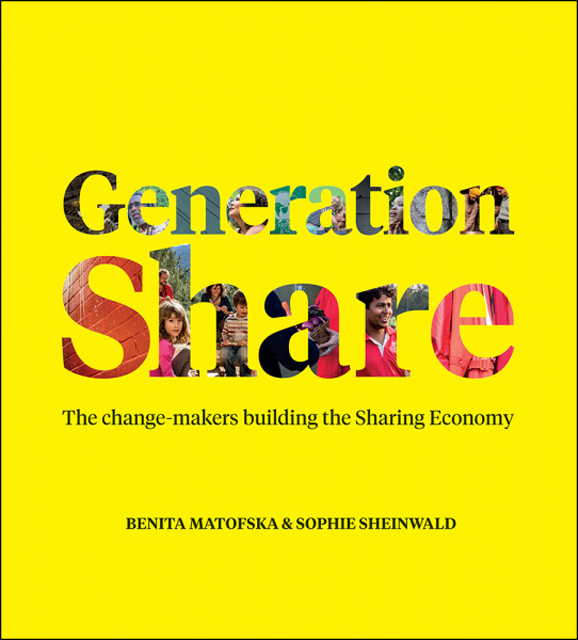Book contents
- Frontmatter
- Dedication
- Miscellaneous Frontmatter
- Contents
- Our Sponsor
- What Is The Sharing Economy?
- Does Age Matter?
- Sharing By Gender
- Sharing The City
- Sharing The Countryside
- Sharing The Money
- Is Sharing Cultural?
- Sharing And Disability
- The Geography Of Sharing
- Conclusion
- Notes
- Generation Share demonstrates the power of Sharing. The change-makers show just what’s possible – now it’s your turn. What can you share? How can you make a difference?
Sharing The City
Published online by Cambridge University Press: 14 October 2022
- Frontmatter
- Dedication
- Miscellaneous Frontmatter
- Contents
- Our Sponsor
- What Is The Sharing Economy?
- Does Age Matter?
- Sharing By Gender
- Sharing The City
- Sharing The Countryside
- Sharing The Money
- Is Sharing Cultural?
- Sharing And Disability
- The Geography Of Sharing
- Conclusion
- Notes
- Generation Share demonstrates the power of Sharing. The change-makers show just what’s possible – now it’s your turn. What can you share? How can you make a difference?
Summary
A sharing city is a playground for the Sharing Economy, everything that is needed is already there. All the cars are there, the food is there, the houses are there, you just have to divide, share and make better use of available resources within the city for everyone’s benefit.
Harmen van Sprang, co-founder, Sharing Cities Alliance.
That our urban environments face the considerable challenges of population, pollution and poverty is evident. But around the world, cities have another story to tell. A (not so) quiet revolution is happening. An abundance of untapped physical and human resources, combined with a desire to create sustainable eco-systems that benefit citizens, has led to the re-imagination of the city. This new approach commingles smart, networked technologies, available resources and sustainable development approaches, illustrating that when cities are co-created by the ‘city-zens’ themselves, we can bring everyday magic to our metropolises. Share a car and take between 9 and 13 cars off the road, lower carbon and offer cheaper mobility; share the 1.3 billion tonnes of needlessly wasted food and sustain those living in food poverty; create inclusive, community spaces where people can connect and watch people flourish.
Indeed, being part of a community could be life-saving. A recent three-year study in Frome, UK, showed that emergency hospital admissions fell dramatically following the introduction of a Sharing project to tackle isolation. The Compassionate Frome project, launched by GP Helen Kingston, deployed health and volunteer community connectors to help patients find support. Despite a 29% increase in emergency hospital admissions across the rest of the region, in Frome, they fell by 17%. The study found that this is due in no small part to the Sharing projects catalysed by Compassionate Frome. From Men’s Sheds (where men come together to make and mend), to Library of Things, where you can share and borrow needed items, the study demonstrates that there’s some science to back up the notion that Sharing can save lives.
The potential for the Sharing Economy to thrive in metropolitan areas is also borne out in greater awareness and higher participation rates, with residents being twice as likely to use Sharing services as their rural counterparts.
- Type
- Chapter
- Information
- Generation ShareThe Change-Makers Building the Sharing Economy, pp. 119 - 154Publisher: Bristol University PressFirst published in: 2022



